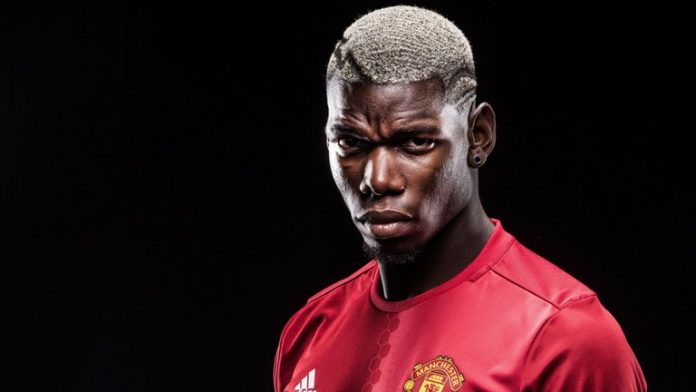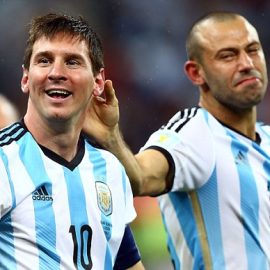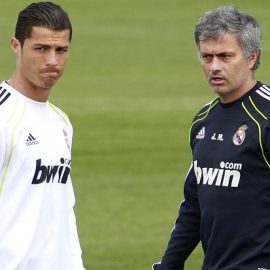Image courtesy of Luma Mufleh and the Fugees Family.
Recently, Soccerlens profiled a humanitarian non-profit organization that assists refugees: The Fugees Family: Pride and Prejudice in a Strange Land. Due to being banned from a local pitch, their plight received mainstream American media coverage.
As a follow-up to this important humanitarian initiative, we are very pleased to welcome Ms. Luma Mufleh, who is a youth football coach in the American State of Georgia. She is also the founder of the Fugees Family.
Coach Luma, please accept a warm welcome to Soccerlens.
You came to the United States for University at Smith College in Massachusetts, and decided to remain. Please tell us about growing up in Jordan, and how were you first exposed to football?
I grew up in Amman, Jordan, as part of a very large family with lots and lots of cousins. I can’t remember the first time I kicked a football, but I do remember getting together with my cousins and playing three or four times a week in my grandfather’s yard. And anywhere I went, as long as there was a ball there was a game going on.
How many children and teams comprise the Fugees Family, and where are they from?
We currently have 96 kids in the Fugees, playing on five teams: Boys U12, U14, U16, U18, and a girls U14 team. The kids have come from 24 different countries, including Afghanistan, Albania, Bosnia, Burma, Burundi, Congo, Cuba, Eritrea, Ethiopia, Gambia, Ghana, Haiti, Iraq, Ivory Coast, Kenya, Kosovo, Kurdistan, Liberia, Sierra Leone, Somalia, Sudan, Togo, Turkey, and Vietnam.
“We came from one war to another.” What does it mean to be a refugee in the United States for your players?
I think it is very difficult to be forced to leave your country and to come and adjust in a very foreign place. On one hand it’s much better, there is no war but on the other hand, they are thrown into this country, with little or no English, no family, no support system, no education and are expected to survive after having gone through trauma that most people can’t even imagine.
In addition to teaching the young players football, what other life skills are they and their families exposed to via the efforts of yourself and many volunteers?
Our primary focus is education, we focus very strongly on the kids academic performances, they are all required to attend tutoring and hand in their report cards to be part of the team. We serve as a resource for the families, helping fill out job applications, food stamp applications, showing them what options are available in terms benefits and career and educational choices. We run workshops for the kids, and have discussions with the parents. With our organization it really does take a village, so the more hands on we can be the more effective we are.
Mayor Swaney (who denied them access to the local pitch) used the term “soccer people” and “grown soccer people” as if he were describing another species. How did you view the initial declaration by Mayor Swaney banning you from use of a pitch, and after it was explained to your players, what was their reaction?
I laughed, I mean sometimes I do think we are a different species. I remember watching a Liverpool/Everton game in the 80s with my cousin in England and I looked around and thought we were part of this crazy group of football fans, and to an outsider it may seem a little off putting. What other sport incites such passion?
But on a more serious note, there are things that I just don’t think people can understand. And people are threatened by things that are different, and I think part of our purpose is to educate. I never told the kids about the field issues that we had. They are kids, I think on some level they knew something was going on, because we would move so often from field to field, but it wasn’t until the New York Times article that they knew what was going on. And in the grand scheme of things the field issue isn’t the hardest thing they have to face. They face discrimination on the field, in their schools, in their apartment complexes. We try to have the field be our getaway and escape the one place we can feel safe and normal.
Please tell us the story behind “One Shoe?”
It all started one hot day in August, when I was holding an open soccer practice in Clarkston. I had the kids that came out to scrimmage, as I observed and coached from the sidelines. During this scrimmage, I noticed a child who was not playing his position. I wanted to get his attention, but I did not know his name, as he was one of 30 new kids on the field. I tried to get his attention but did not succeed. Finally, I asked another kid if he knew the other kid’s name. “Oh that’s One Shoe,” he replied. “One Shoe?” I said, puzzled by the response. “Yeah, One Shoe!” I shook my head confused as I looked down at “One Shoe’s” feet, then noticing that he was wearing one oversized black sneaker on his left foot, his kicking foot. His other foot was bare.
I continued to watch “One Shoe” play; he didn’t have a care in the world, playing on the soccer field, laughing and fooling around with the other kids. We ended practice an hour later. “One Shoe” came off the field, took off his sneaker, wiped it down carefully, putting in his backpack. He then put on his flip-flops preparing himself to walk two miles home. Before he left, he turned and said, “See you tomorrow Coach.” “See you tomorrow, One Shoe,” I said to myself. Ever since that day, I have seen “One Shoe” at least four days a week. He has expressed to me that “soccer is (his) life” and that the “Fugees are (his) family.” He has made me realize that it can take so little to make someone happy.
Today Show Interview with Tiki Barber (Mr. Barber was a former professional American gridiron football player for the New York Giants, and is now a journalist).
As we can see from the above video clip, you appeared in June 2007 on the American morning program, “The Today Show.” Did the significant interest from the American mainstream media surprise you?
Yes it did. I mean, I had been doing this for three years with the same story and the same struggles. But we never wanted recognition or publicity, just the basics of uniforms, cleats (boots), and a place to play. It was humbling to see that so many people supported us and believed in what we were doing. Some days it’s extremely overwhelming.
Due to the publicity surrounding your story, Universal Studios donated US $500,000 to build a new field and fund a Foundation for the Fugees. Could you please describe the future movie that is in the works?
The Fugees Family non-profit organization will receiving $500,000 from the movie deal with Universal. The board of directors will determine how best to use this money for the benefit of everyone involved. So far, Andrea Berloff has been hired to write the screenplay. Since the writers had been on strike for 4 months, they are just starting up right now. The next step after the screenplay is finished and approved is to hire a director and then go on from there.
In September 2007, you received a donation worth US $100,000 from Nike’s “Let Me Play” program. Could you please discuss how the soccer gear/kits will be utilized, and what other charitable organizations have assisted your Foundation?
Just two years ago, our teams were outfitted with white t-shirts. We wrote the numbers on them with a permanent marker. The kids loved them because they got to put their names on the back! We have gone seasons where the kids shared cleats (boots), and shin-guards, trading them out between games, and we didn’t have soccer balls that were considered acceptable enough to be game balls. Having all that now makes things a lot easier, and allows us to focus on running practices and playing our game. The kids have to earn their gear, and they have to sign a contract to be a part of the team. We reward kids that have good grades in school. We have always set it up so that you earn what you want, things aren’t handed out. We are about hard work not entitlement.
Other foundations that have helped us include the Atlanta Falcons Youth Foundation, the Atlanta Women’s Foundation, and the Staples Foundation for Learning.
How can the international football community donate time or money to assist the Fugees Family?
They can go to our website fugeesfamily.org and donate. We are looking to find 2000 donors that can give $100/year. I would love to have 2000 football fans around the world that make it possible for these beautiful kids to succeed. We as a non-profit rely on foundations and individual donors. We receive no government funding. We are committed to running this program for a long time and it’s incredible how something as simple as football can be so powerful in these kids’ lives. To volunteer you can contact me at coach@fugeesfamily.org
Coach Luma, thank you very much for your contribution to our column. All the best wishes to you and the Fugees Family.
Steve Amoia is the author and editor of World Football Commentaries. He also writes for Soccerlens and Keeper Skool.
Add Sportslens to your Google News Feed!





